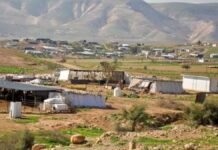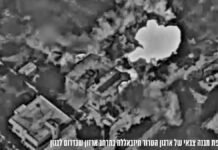
Gaza: Israel and Hamas have agreed to a four-day ceasefire that came into effect on Friday morning, paving the way for the release of dozens of hostages held by both sides. The deal, mediated by Qatar, the US, and Egypt, also includes the resumption of fuel supplies to Gaza, which has been under a crippling blockade by Israel for seven weeks.
As part of the agreement, Hamas has released 13 Israeli hostages, including 12 Thai citizens, who were captured during the surprise attack on Israel on October 7. Thai Prime Minister Shretha Thawisin confirmed the release of the 12 Thai hostages and said that embassy officials were going to pick them up. He also said that their names and details would be revealed soon.
Israel has also agreed to release 150 Palestinian prisoners, who were detained during the Israeli offensive on Gaza, which killed at least 13,300 Palestinians. The Palestinian extremist group ruling Gaza had launched an unexpected attack on Israel on October 7, taking about 240 hostages, including citizens of other countries. Hamas had promised to release at least 50 hostages during the ceasefire.
The ceasefire has brought some relief to the 2.3 million people in Gaza, who have endured weeks of Israeli bombardment that destroyed vast parts of the territory. It has also eased the worries of the families in Israel, who were concerned about their loved ones who were taken captive by Hamas.
However, the ceasefire is fragile and could collapse at any moment. Israel has warned that it is ready to resume large-scale attacks once the ceasefire ends. It has also said that it will not lift the blockade on Gaza, which restricts the movement of people and goods in and out of the enclave.
The agreement also allows the entry of 1,30,000 liters of fuel per day from Egypt to Gaza, which is a small fraction of the daily requirement of more than 1 million liters. The fuel is needed to run generators that power water treatment plants, hospitals, and other essential services in Gaza. Israel had stopped the supply of fuel to Gaza during the war, claiming that Hamas could use it for military purposes. UN aid agencies, however, disputed this claim, saying that the fuel supplies are closely monitored and that the lack of fuel could lead to a humanitarian disaster.

The deal is seen as a major breakthrough in the ongoing war between Israel and Hamas, which has killed about 1,200 people in Israel. The war has also increased the violence in the occupied West Bank region and raised fears of a wider conflict across the Middle East. The deal is expected to pave the way for further negotiations on a long-term solution to the conflict.



















































